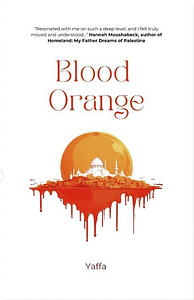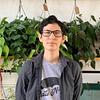Take a photo of a barcode or cover
I wanted to read Palestinian voices this year, and this was recommended to me. The stories told are crushing and important, and this resonated with me even though I am not a huge poetry fan.
fast-paced
inspiring
fast-paced
emotional
reflective
fast-paced
This is a book of poetry from a trans palestinian located within the diaspora. Some poems are filled with yearning for Palestine. Some poems are filled with rage at the ongoing genocide and people’s reactions to it. All poems are necessary. Beautifully done.
reflective
fast-paced
I’m not going to give this book a star rating, because I actually think that it would take away from the important context of this book. Mx. Yaffa is a trans Palestinian in the Diaspora. This is extremely important context to know when you’re going into this poetry collection.
I’m someone who has spent several years trying to hone in my (novice) understanding of poetry and also been reading more and more Palestinian poetry over the last 2 years. There is a clear difference between poetry that comes from writers in the Holy Land, writers who have grown up in the Holy Land and then left for the Diaspora, and writers who have always lived in the Diaspora. All of these writers are Palestinian and bring valuable and meaningful (& beautiful) words on paper to describe their narratives.
Mx. Yaffa writes in a more “modern” style of poetry that folks relatively unfamiliar with poetry would probably relate to Rupi Kaur. They write in free verse with a few words per line and longer stanzas. Most of their poems could read like Instagram captions, which is why this form of poetry is also sometimes called “instapoetry,” but that is rarely meant as a compliment.
However, what this accomplishes in this collection is to remove some of the true emotion/relational nature of the poetry and connection to trans & Palestinian identity and turn it to an intellectual connection. The author often asks the reader questions within the poem that intellectualize the Palestinian exile and the plight of queer, Muslim Palestinians in their journeys of belonging. Rather than talking about specific autobiographical experiences - Mx. Yaffa chooses to take the reader on a logical exploration around genocide, war, exile, and whiteness.
I read this collection after knowing the work of Mx. Yaffa for a couple of years. They are phenomenal, consistent, and wise. If this is your first experience with them or their work, I’m not sure that this is the most powerful or expressive takeaway. I think this even more if you haven’t read or heard of the works of any other Palestinians.
I’m someone who has spent several years trying to hone in my (novice) understanding of poetry and also been reading more and more Palestinian poetry over the last 2 years. There is a clear difference between poetry that comes from writers in the Holy Land, writers who have grown up in the Holy Land and then left for the Diaspora, and writers who have always lived in the Diaspora. All of these writers are Palestinian and bring valuable and meaningful (& beautiful) words on paper to describe their narratives.
Mx. Yaffa writes in a more “modern” style of poetry that folks relatively unfamiliar with poetry would probably relate to Rupi Kaur. They write in free verse with a few words per line and longer stanzas. Most of their poems could read like Instagram captions, which is why this form of poetry is also sometimes called “instapoetry,” but that is rarely meant as a compliment.
However, what this accomplishes in this collection is to remove some of the true emotion/relational nature of the poetry and connection to trans & Palestinian identity and turn it to an intellectual connection. The author often asks the reader questions within the poem that intellectualize the Palestinian exile and the plight of queer, Muslim Palestinians in their journeys of belonging. Rather than talking about specific autobiographical experiences - Mx. Yaffa chooses to take the reader on a logical exploration around genocide, war, exile, and whiteness.
I read this collection after knowing the work of Mx. Yaffa for a couple of years. They are phenomenal, consistent, and wise. If this is your first experience with them or their work, I’m not sure that this is the most powerful or expressive takeaway. I think this even more if you haven’t read or heard of the works of any other Palestinians.
challenging
hopeful
informative
medium-paced
emotional
informative
fast-paced
challenging
emotional
reflective
medium-paced
emotional
reflective
sad
fast-paced
challenging
emotional
fast-paced








